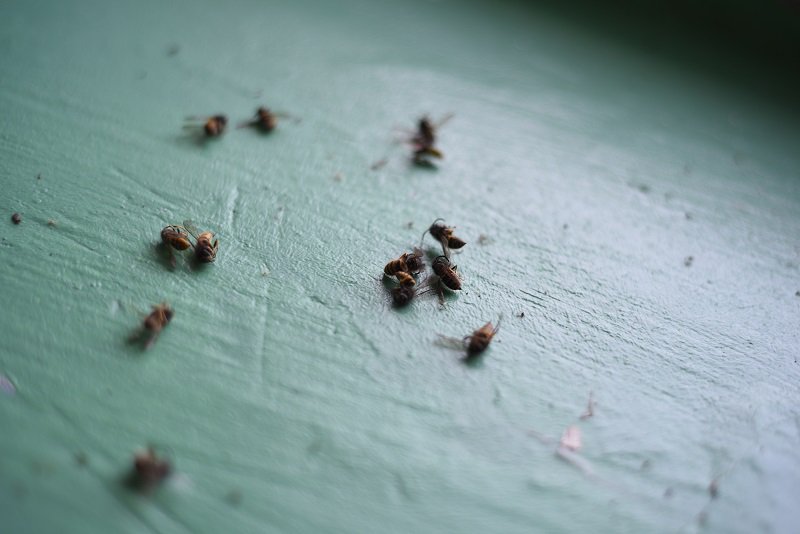A Break Down of the Different Kinds of Bug Control Solutions
In the world of bug control, a plethora of methods exist to battle the visibility and attend to of undesirable animals. From the conventional use chemical pesticides to a lot more innovative biological control services, each method provides unique benefits and limitations. As we browse through the diverse landscape of insect control solutions, comprehending the details of each method ends up being critical in determining one of the most effective program of action. Keep tuned as we check out the nuanced world of pest control strategies and uncover how each type plays an one-of-a-kind role in guarding our environments.
Chemical Pesticides

One of the primary advantages of chemical pesticides is their capability to provide instant relief from insect problems. When applied correctly, these chemicals can rapidly get rid of pests, stopping more damage to plants, structures, or human health. In addition, chemical pesticides come in various types such as lures, sprays, and fumigants, making them appropriate and flexible for different pest control demands.
Nevertheless, it is vital to use chemical pesticides with caution because of their potential harmful results on the setting and non-target types. Inappropriate application or overuse of these pesticides can cause air pollution, damage to helpful bugs, and resistance development in bug populaces. Consequently, it is vital to follow security guidelines and laws when utilizing chemical pesticides for pest control.
Biological Control Methods

There are 2 major types of biological control: augmentative and timeless. Timeless biological control includes presenting natural adversaries from the pest's native variety to control its population. On the other hand, augmentative organic control entails launching lots of all-natural opponents to lower parasite populations rapidly.
As soon as established, natural opponents can assist manage pest populations continuously without the demand for duplicated applications of pesticides. Additionally, biological control is frequently much more cost-effective and can aid minimize pesticide resistance in parasite populaces over time (pest control fresno).

Mechanical Insect Control
Mechanical pest control entails the physical manipulation or elimination of insects to manage their populaces successfully. This technique is usually employed combined with various other pest control techniques for extensive insect administration. One typical example of mechanical pest control is using traps to record bugs or rodents. These traps can be set up in strategic locations where parasites are recognized to dwell, aiding to lower their numbers.
One more mechanical technique is using barriers such as fencings, nets, or displays to block insects from going into particular areas. By literally stopping insects from accessing an area, the probability of infestations or damages can be substantially decreased. In addition, hands-on methods like handpicking bugs off frameworks or plants can be effective for smaller-scale important source problems.
While mechanical insect control methods can be labor-intensive, they offer a non-chemical choice that can be ecologically pleasant and sustainable. By targeting pests directly, mechanical control strategies can help maintain pest populations in check without relying upon pesticides.
All-natural Remedies
Making use of all-natural solutions for pest control provides a green and lasting strategy to taking care of pest populaces without resorting to chemical treatments. All-natural treatments include utilizing substances derived from plants, minerals, or other normally taking official statement place resources to prevent or remove parasites.
Furthermore, crucial oils such as tea tree oil or neem oil have insecticidal homes that can efficiently control pests while being safe for the setting. pest control fresno. An additional all-natural solution is introducing useful insects like ladybugs or hoping mantises to your yard to victimize damaging pests. By including these all-natural services right into insect management strategies, people can minimize their reliance on synthetic chemicals and promote a much healthier, much more well balanced community
Integrated Insect Monitoring
Integrated Bug Monitoring (IPM) is a detailed method that incorporates he has a good point different strategies to efficiently control pest populaces while minimizing risks to human health and the environment. IPM includes the integration of several insect control techniques such as organic control, environment adjustment, alteration of cultural methods, and the use of resistant plant varieties. By making use of a combination of these methods, IPM intends to reduce reliance on chemical pesticides, which can have adverse effect on communities and human wellness.
One key element of IPM is the focus on avoidance. By executing actions to stop bug problems before they happen, such as preserving correct sanitation and sealing entrance factors, the demand for responsive pest control steps is decreased. Monitoring and regular assessments play a vital duty in IPM, enabling early detection of bug issues and prompt intervention.
Conclusion
In final thought, the various types of parasite control options provide a range of alternatives for properly handling pest problems. Biological control methods make use of natural predators to control bugs. Integrated Insect Management incorporates several strategies for an all natural strategy to pest control.
Chemical pesticides are commonly made use of in parasite control to successfully get rid of a wide array of pests and other pests.Mechanical parasite control involves the physical adjustment or removal of insects to manage their populations successfully.Utilizing all-natural remedies for insect control supplies a lasting and eco-friendly technique to managing insect populaces without resorting to chemical interventions.Integrated Bug Management (IPM) is a comprehensive technique that incorporates various approaches to successfully manage pest populaces while minimizing threats to human health and wellness and the setting.In conclusion, the different kinds of parasite control solutions provide an array of alternatives for effectively handling bug problems.